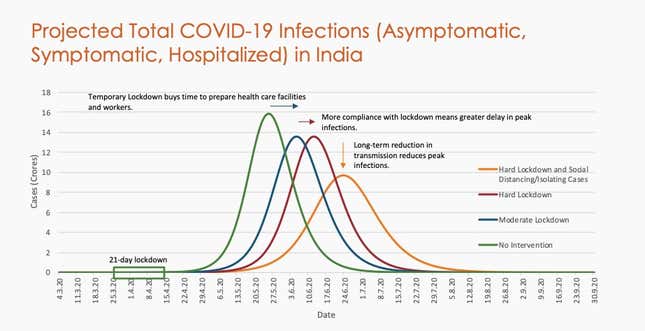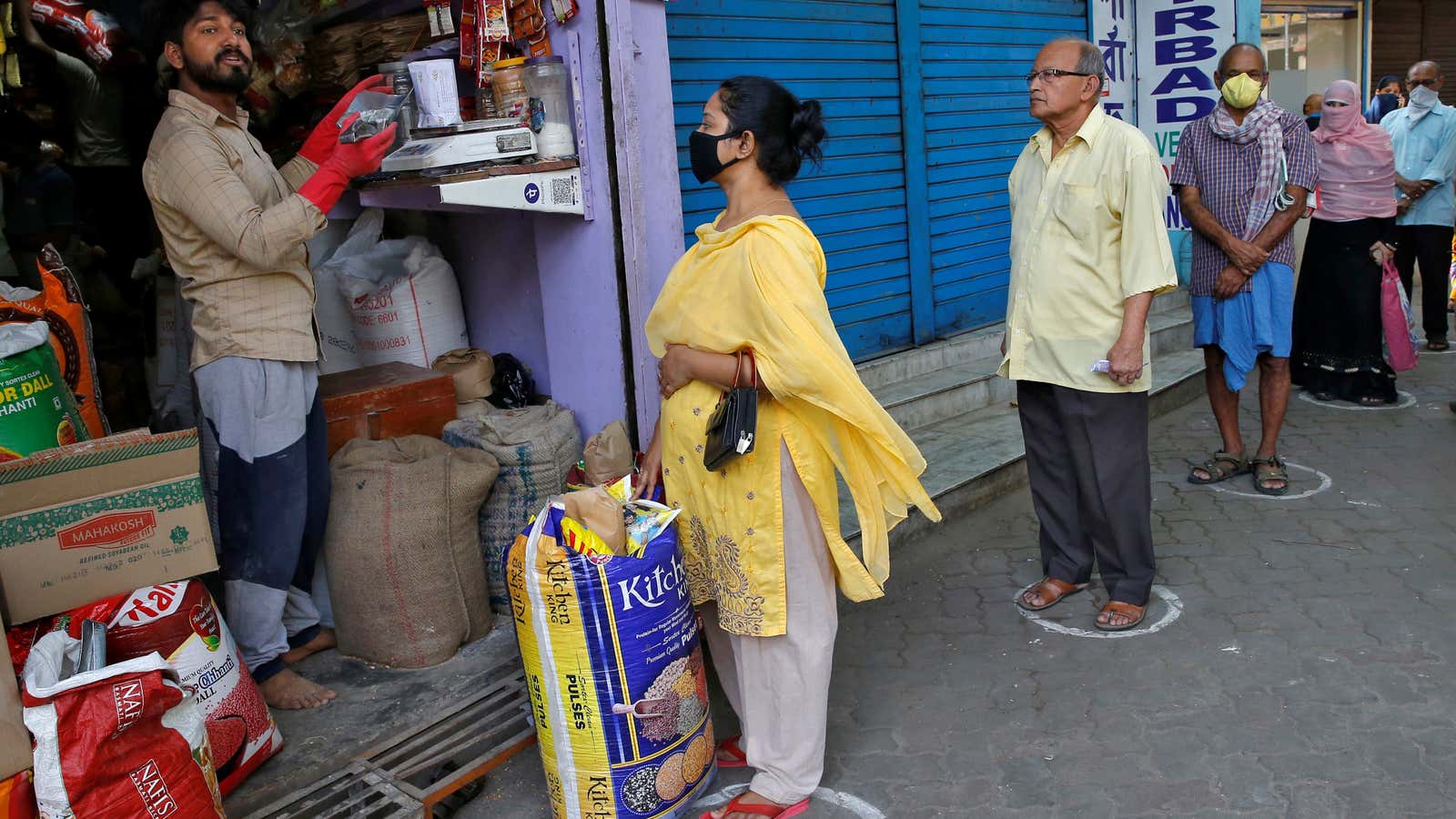India stands to significantly benefit from a continued hard lockdown, in the fight against Covid-19.
Peak total coronavirus infections in India could be reduced by nearly 40% with hard lockdowns and continued social distancing measures, projects a research, published on April 20, by the Center for Disease Dynamics, Economics & Policy (CDDEP), a public health research organisation based in New Delhi and Washington DC.
Currently, India is under a nationwide lockdown till May 3, though some rules have been eased since yesterday (April 20) in regions that are not Covid-19 hotspots.
Without a lockdown, the rate of reproduction of the infection—the number of new infections each case leads to—would be at 2.66, according to this research. While a hard lockdown can bring this rate down to 1.5, the researchers project it would jump back up to 2.4 as soon as the restrictions are removed. The most effective scenario is when a hard lockdown is followed by a prolonged period of social distancing and isolation methods. In this scenario, the rate of infection climbs up to two after a hard lockdown is lifted.

The major benefit of a “softer” infection curve is the time it gives a country to scale up its healthcare infrastructure. “The primary effect of an extensive, temporary lockdown is to provide time to the health system by delaying peak infections until adequate health care infrastructure, personnel, and equipment can be obtained,” the researchers wrote.
This research, though, is not peer-reviewed and is a result of “analysis of a fast-moving epidemic with many uncertain parameters.” It also does not directly reflect the views of the institutions that researchers belong to, which had led to some confusion the last time CDDEP had published a paper.
